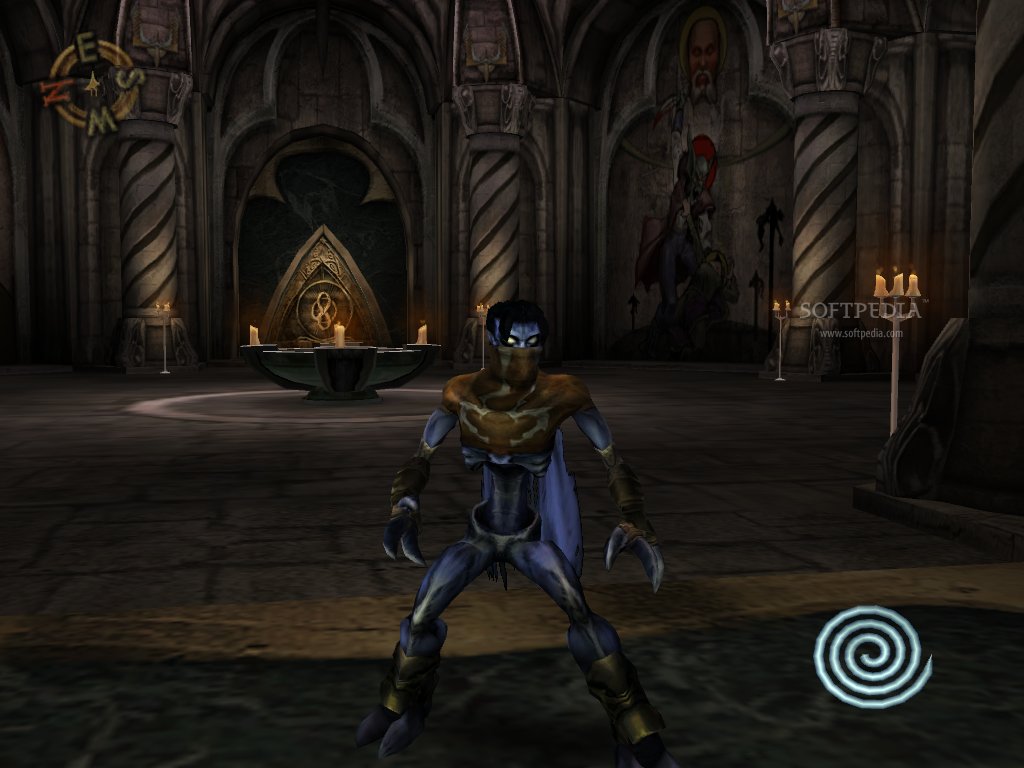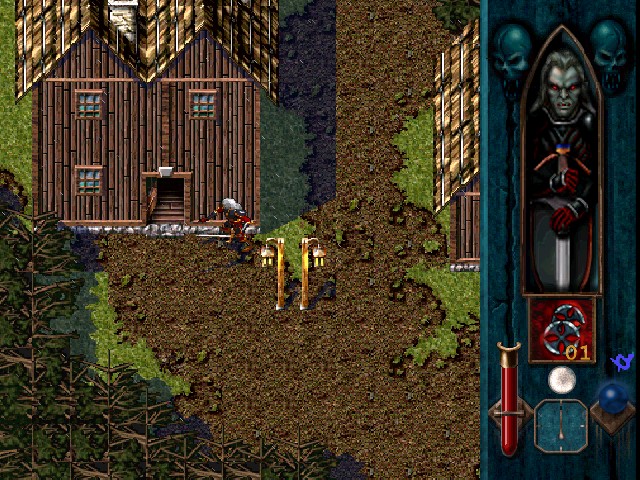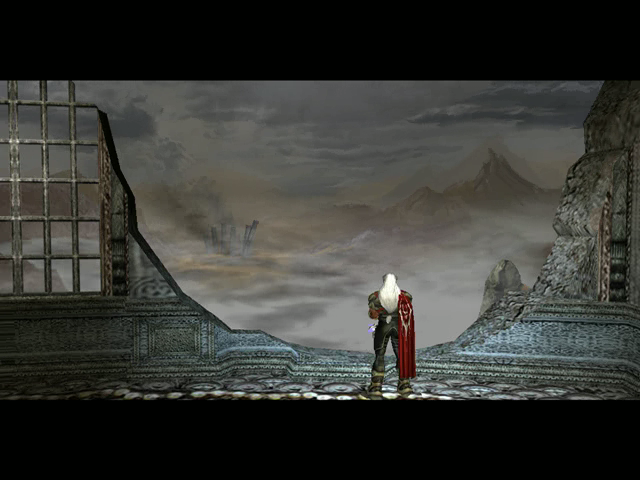Could that be taken as a critique, though? That in changing the way we purchase and in the quantity that we're maybe missing out on part of the experience of owning a title?
People are buying more games now - or maybe more people are buying games. Either one of those is probably an apt take on the matter. My personal stance on it isn't that people are buying more. Rather, I think it'd be fair to say everyone has so many titles in our backlogs because we can no longer get rid of our older titles. There is no "Bargain Bin" that appears when a user has discarded a Steam title because there's no way to discard them.
So I have thirty games I never intend to play again. There's really no 'easy' way I could give those titles to another person that wouldn't result in my entire library being completely invalidated by being banned. Otherwise, I can 'hide' them and they vanish from my Steam library and are relegated to being a cold nagging that tugs at the back of my mind.
 |
| confronting your own habits in a videogame - PC/PS3/Xbox360 |
Of course consoles still depend on physical media, but that line is getting more blurred with each iterative generation of hardware. Even just little over a year ago there was the possibility that software for the Xbox One would be 'locked in' when it was loaded on the system for the first time, prohibiting people from trading or borrowing games.
Microsoft fortunately made the wise decision to scrap that feature (I love it when negative components of design are still referred to as features) before release. It was only awhile before that, and hardly a long while to boot, that a digital-only console would have been considered a novelty. Let's not mention the Xperia play here.
Stores still widely featured PC games on shelves (in actual boxes!) and if you had a ton of games on your system it was probably because you went out and bought them. Which was of course accompanied by the sight of a lot more looming towers of jewel cases (if you're a retro collector like me) or the black-box clam shell packages.
Of course it's not like those things went away, but companies have gone a long way to make it even easier to purchase titles digitally. When I first started collecting videogames I made it a point to collect anything "interesting" that either went against established industry norms, or had something to offer besides bland storytelling and flashy instant-reward gameplay. The first victims of my rush to get rid of things were anything that had to deal with God of War, a decision I still don't (and never will) regret. If anything, getting rid of anything remotely associated with that franchise was probably the closest experience I will ever have to a Zen awakening. "Finally, no more bad videogames" I say, my chakra aligning.
Anyway.
One of the first franchises I took an interest in was Legacy of Kain. It's Vampires for Videogames, written through the language of Shakespearean play for an audience that grew up rolling their eyes any time someone mentioned that Anne Rice was like, totally cool.
From a mechanical standpoint, in the entire series, Legacy of Kain always skewed more "interesting" than "good". In an entire series that remains sadly unfinished, there's probably one game that's wholly enjoyable to play from start to finish. Legacy of Kain is however, one of those series' that set out to do something interesting and tells an incredible (and incredibly convoluted) story from beginning to end.
It was for that reason that I set out to collect the entire series, at a time when I enjoyed videogames as a medium but didn't necessarily understand them. My obsession started with Legacy of Kain: Soul Reaver, a depressing and somewhat nihilistic open world action game for the original Playstation.
Soul Reaver was an easy pick because it was in the ballpark of games that have A) never been re-released and are B) still regarded as cheap to acquire. No need to pay hundreds of dollars for a factory sealed copy, when you can find them on eBay for just a couple of dollars.
 |
| Legacy of Kain: Soul Reaver 2 (PS2) |
Eventually I'd acquired almost the entire series, save the original PlayStation title and genesis of the series.
I even made an effort to play the entire series that I owned up until that point.
Now, this isn't meant to be a critical condemnation of the series, but at the time these games were made before 3D action was the norm for titles. With no Devil May Cry to base themselves off of, the series had a relatively simple and frustrating approach to combat, with more focus on exploration and "puzzle solving" (because this was also the days when dragging cubes was a puzzle) with little regard to how the rest of the game worked.
Why I wanted to collect the Legacy of Kain series more than anything, even the writing, was the fact that it was one of the few contemporary series to evolve fully with trends that the rest of the industry worked under. The series progressed from an overhead dungeon crawler at a time when they were vogue to becoming a Devil May Cry style action game.
I was, at the time, misguided. For all of the interesting design choices the series showcased, that inherent 'gameplay' was never the focus the developers intended. It was always about the story they were trying to tell of two characters struggles against causality
Legacy of Kain was always trying to stay relevant at a time when there was generally several gaps in years of production. It had to effectively grow with the changes the industry made to whats popular, but I don't think the core team of developers strong point was ever mechanical refinement.
Maybe in an alternate universe, the creative team hired someone like Shinji Mikami to give directorial input on the franchise. Alas, Legacy of Kain had the misfortunate in being developed in a time when there was seldom cross-polination of Japanese developers in Western studios.
Oh well, I decided it wasn't worth it. Bad investment, why did I buy these games? So even though it took me an incredibly long time to track down Blood Omen 2 in a presentable manner, I traded them out for fuckin' Radiata Stories or some other basic PS2
Why do I beat myself up about Legacy of Kain and its all of the hella weird design choices it exhibited over the years?
 |
| Legacy of Kain: Blood Omen |
If you're a lucky one who's never let go of anything under the pretenses of a fair sale, Sellers Remorse is the strange regret you feel when you think the sale you just made was a bad decision. Maybe the thought crosses your mind that the person you've sold it to isn't going to appreciate it (the person who bought Defiance from me said "So it's like God of War with vampires right?) or even you're simply upset that it no longer belongs to you.
When I was "Building My Collection" (I still kind of am) I ran into this all the time. I would trade one game for another one that I absolutely had to have. I absolutely hate the sellers mindset. I've only ever bought a videogame I wanted so that I could enjoy it, not so it could sit on a shelf. Yes, I own Parasite Eve II because I thoroughly enjoy it. That's just my bad taste overriding rationale.
But I handed almost all of the Legacy of Kain series to a guy who wanted to buy them because he needed to fill a space on his shelf marked with the name of the series. I remember the schlub so well because I tried to hold and interesting conversation with him about where videogames were going as an art form and he was convinced that Infinity Ward was going to be the future and that videogames needed to draw from cinema.
Why did I do that? I'm a terrible judge of character and I hate collectors but not enough to not trade with them, that's why. Yet with every time a game like Suikoden II is re-released on Playstation Network, it drives the cost of the original games down and people that actually want to play them in their original format can finally enjoy them.
Videogames second hand market is collector driven. As an industry (art form?) videogames have no "criterion collection" unless the original publisher themselves decides to re-release a title. Sometimes this is even impossible because of how content rights in the world of videogames work, as in the case of Mega Man Legends 2. A game which can probably never be re-released unless Capcom is willing to re-record every bit of dialogue.
 |
| Legacy of Kain: Defiance |
So, in an example I use all the time: If you want to play it be willing to pay hundreds of dollars.
Or emulate it, which is a crime.
Now, with Steam we're seeing a different kind of market play out. I own dozens of games and I know people that sometimes own hundreds. Not only are we purchasing different, but there's really no way for us to "get rid" of games by trading them to someone else.
The market for PC titles now is being consumer driven. We're really driving it with our dollars - through things like Kickstarter and Steam Greenlight. Both of those models do have huge problems with them, but there really needs to be an equivalent for classic games.
Sellers remorse isn't some 'big deal' but it does highlight an outlaying problem with archiving of videogames. At one point it is possible there might not be a way to re-visit older titles. With the way the ESA cracks down on emulation sites and these days, and how few titles are actually being re-released we're facing an absolute loss of history.
So my sellers remorse isn't because the dweeb that I traded games with wont appreciate them. It's because I'm worried that I wont get to experience them again, despite the impact they actually had on the rest of the medium. The videogame industry isn't respecting the medium enough to have people actively engaged in it enough to worry about this kind of stuff, either.
If the most popular videogames are all some God of War / Uncharted level monstrosities, I wouldn't exactly consider them a "serious medium" either and would have no interest in thinking them being cataloged and retained could have any artistic merit.
What kind of future am I looking for? an entirely digital one, or one that still heavily relied on physical media? That's a question that isn't going to be answered if just one person is asking it. Sellers remorse itself isn't a thing I have to deal with very often and is quickly becoming the kind of problem only collectors run into.
I can never get rid of the Magicka franchise, bought on a whim once during a summer sale, and that's almost as bad as giving away something I really enjoyed.

After much consideration, this is one of my favorite blogs. keep up the great writing.
ReplyDelete